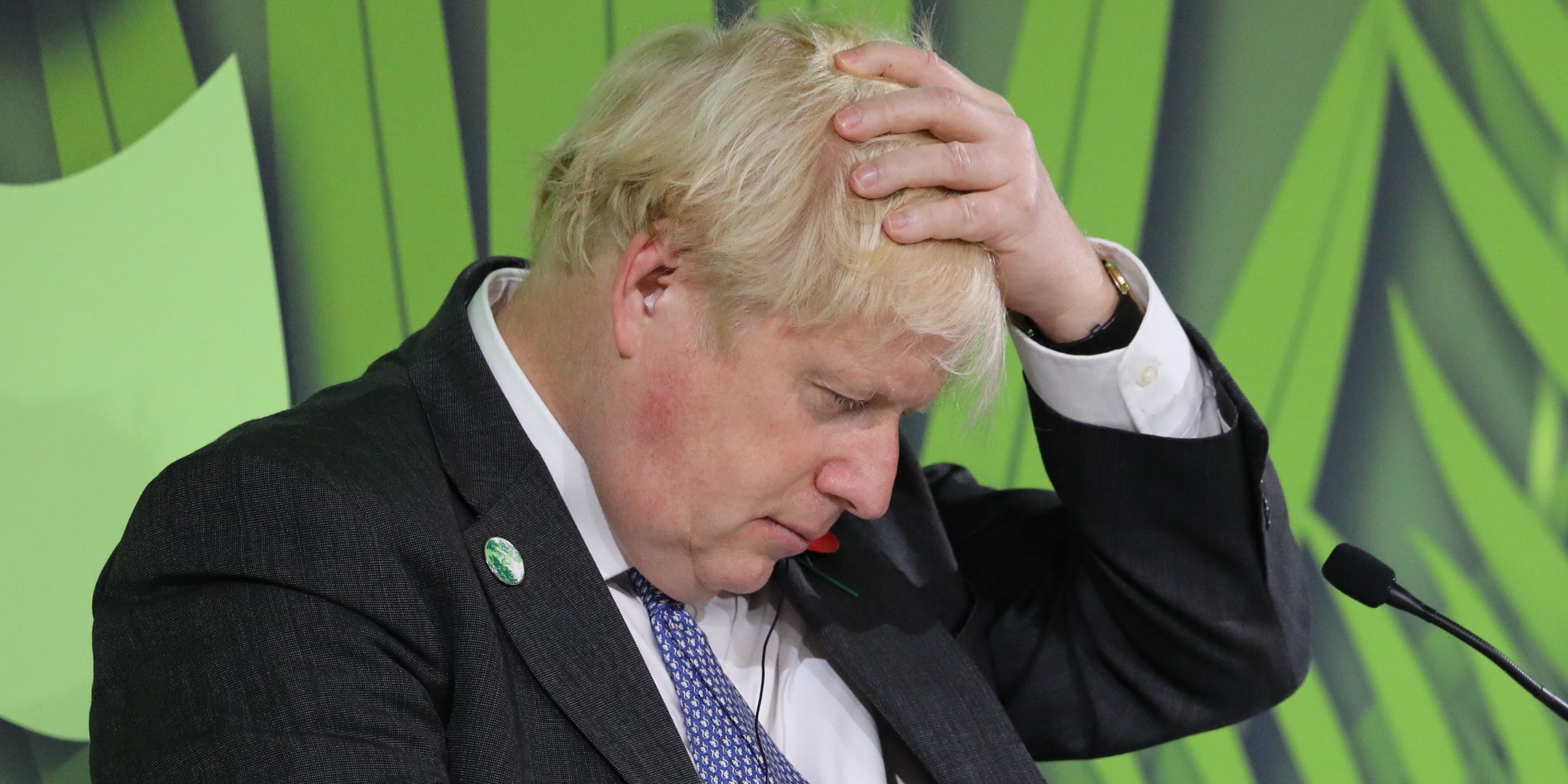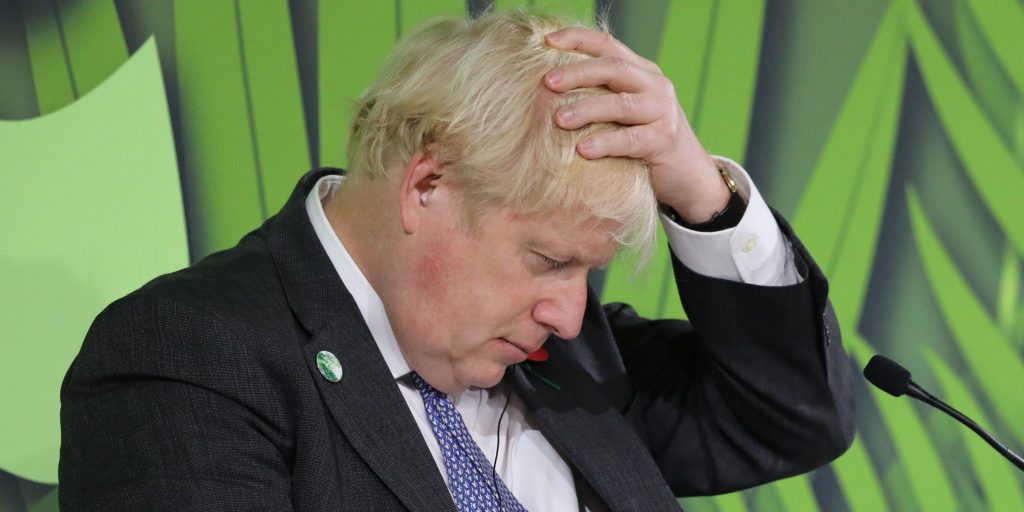
Steve Reigate/Getty Images
- UK government documents seen by Insider show how officials judge key policies.
- Most have metrics that can end in success or failure, but not "seize the opportunities of Brexit".
- Anti-Brexit campaigners have long contended that leaving the EU will harm the UK.
The UK Government proposed no measurable way to assess the success of Brexit, according to documents seen by Insider.
While other priority policies were given specific targets to meet, that could be judged to have succeeded or failed, the documents did not suggest anything concrete for assessing Brexit.
Anti-Brexit campaigners said that the lack of solid criteria is an attempt to mask the ways leaving the EU has harmed the UK.
Boris Johnson's government aspires to seize "the opportunities of Brexit, through creating the world's most effective border to increase UK prosperity and enhance security", according to documents published as part of the Spending Review.
Instead of specific metrics, officials said they would "provide narrative reporting on progress for this outcome".
Progress against these outcomes are to be reported to the Treasury and the Cabinet Office, the document says.
Naomi Smith, chief executive of Best for Britain, which campaigned to stop Brexit, told Insider: "The government's bare-bones deal with the EU has so far resulted in more failure than success, so instead of moving the goalposts on Brexit, they've done away with them completely.
"Ministers in the Cabinet Office cannot be allowed to mark their own homework or fudge the damaging impact Brexit is having for the people and businesses who they promised only benefits.
"They must provide a clear list of priority outcomes and metrics so voters can judge for themselves whether or not Johnson has made a success of Brexit."
This narrative-based metric is also being used by the Cabinet Office to measure the success of securing a "safe, prosperous and resilient UK", as well as in advancing "equality of opportunity across the UK".
Only one Cabinet Office priority outcome, on "increasing the efficiency, effectiveness and accountability of government", has any metrics. These metrics include the "percentage of government contracts published by departments in a timely fashion", for which the government has been criticized.
Other departments have clearer metrics - for instance the health department is to be measured partly on cancer survival rates, and the education department will be judged in part on literacy levels in children.
No metric is suggested regarding the Cabinet Office's handling of Freedom of Information requests, nor is there any mention in the document of transparency as a priority outcome for the UK government, aside from the Northern Ireland Office's priority of ensuring governance in Northern Ireland is "responsive, transparent and able to deliver effective public services."
Rhys Clyne, senior researcher at the Institute for Government, told Insider: "Without clear metrics or more information about the work involved in these areas, it is hard to gauge what success might look like for these outcomes.
"The new system does not meaningfully improve public transparency over government performance. Progress made by departments towards their outcomes will be published annually in the departments' annual reports and state of accounts, which is a step forward."
The Cabinet Office did not immediately respond to a request for comment.

